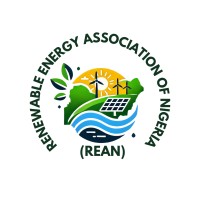The Renewable Energy Association of Nigeria (REAN) has strongly cautioned the Federal Government against implementing a proposed ban on the importation of solar panels, urging for a more strategic and phased approach that aligns with the realities of Nigeria’s energy sector.
In a statement issued on Wednesday, REAN emphasized that while the federal government’s desire to encourage local manufacturing is laudable, such a drastic policy shift without adequate groundwork could stifle the growth of the renewable energy sector, disrupt ongoing projects, and worsen energy access in underserved communities.
This development comes following comments by the Minister of Innovation, Science and Technology, Uche Nnaji, who recently disclosed that the government was considering restricting the importation of solar panels to promote domestic production. Nnaji had cited the existing capacity of the National Agency for Science and Engineering Infrastructure (NASENI), alongside private sector players, as a foundation for this transition. According to the minister, the government intends to leverage the provisions of Presidential Executive Order No. 5 to enforce this plan and support indigenous industries.
However, REAN, in its response, urged the government to tread carefully. The association’s president, Mr. Ayo Ademilua, acknowledged that while the push to strengthen local industries and promote energy security is commendable, it must not come at the expense of the rapid strides already made in the solar energy space.
According to Ademilua, solar energy has become a vital source of electricity for millions of Nigerians who remain excluded from the national grid. From powering homes and small businesses to energizing hospitals and schools, solar technology has proven indispensable in bridging Nigeria’s energy access gap. He warned that any premature restrictions on imports, particularly in the absence of robust local capacity, could jeopardize these achievements.
“Manufacturing is not something that scales up overnight,” Ademilua stated. “If we truly want to empower local production, then we must first confront the harsh realities—high production costs, poor infrastructure, limited access to raw materials, and a scarcity of skilled manpower. Without solving these, asking local manufacturers to meet national demand is both unrealistic and counterproductive.”
He further noted that a blanket ban on imports could cause solar panel prices to surge, making renewable energy solutions unaffordable for the average Nigerian. Additionally, businesses reliant on imported components may find it difficult to survive, leading to job losses and a potential drop in investor confidence within the sector.
Instead of outright prohibition, REAN proposed a phased policy direction. The group advised that government should consider implementing incentives such as tax relief, access to credit, and infrastructure support for local manufacturers. Ademilua also recommended encouraging strategic partnerships between international solar companies and local firms to boost knowledge transfer and improve production quality.
He argued that Nigeria’s energy transition requires consistency, long-term planning, and inclusive stakeholder engagement. “This is a journey, not a one-time policy decision,” he added. “The government must act as an enabler, not a barrier. What the industry needs is an environment that supports both existing investments and the growth of indigenous capacity.”
The association reaffirmed its willingness to work collaboratively with the Federal Government to design a roadmap that protects national interests while supporting the sustainable growth of Nigeria’s clean energy industry.
“We urge the government to reconsider its stance. The future of solar energy in Nigeria lies in balancing local capacity development with practical, market-responsive policies. A thriving industry must be built on strong foundations, not abrupt restrictions,” the REAN president concluded.

